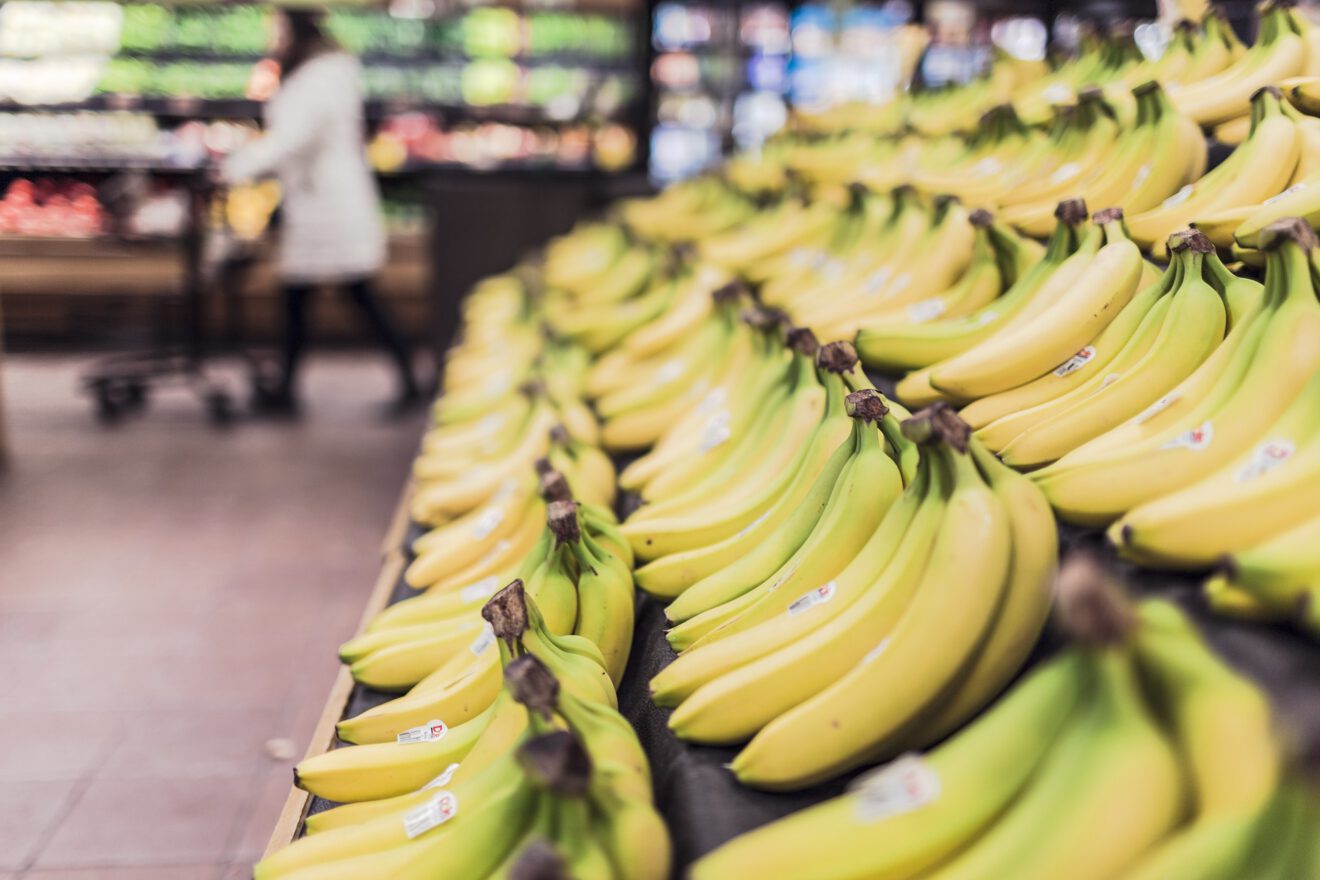Consumer demand for perfect, unblemished food is a major contributing factor to the growing problem of global food waste. More than 1.3 billion tons of edible food go to waste each year, according to the Food and Agriculture Organization for the United Nations. A host of new washes and packaging solutions that use natural, chemical-free methods to extend the shelf life of fruits and vegetables could cut down on spoilage in the fields, during shipping and on the shelf — resulting in less wasted food. Here’s a look at some of the chemical-free products that can help keep produce fresher for longer.
Produce wash from BiOWiSH
US biotechnology company BiOWiSH Technologies developed its Fruit and Vegetable Wash for use with bananas, but the wash has proven successful in preserving freshness in all types of produce, said Bill Diederich, Vice President of Agri-Business for the Cincinnati-based company. The product is an alternative to traditional, chemical-based washes used to clean and treat bananas after harvesting.
The wash is a “biological product, not a chemical,” Diederich said, so it’s better for the environment and creates an enzymatic reaction that results in prolonged freshness. The wash can extend the shelf life of bananas by about six days and is better than traditional washes at removing the “latex” that can cause banana peels to develop brown spots, Diederich said.
Edible coatings from Apeel Sciences
Another approach to prolonging produce freshness is edible coatings, such as the ones Southern California-based Apeel Sciences produces under the brand names Edipeel and Invisipeel. The latter can be applied while fruits and vegetables are still growing in the field, while the former is applied after produce is picked. The invisible, edible coatings are made from plant matter such as leaves and banana peels, and regulate the amount of air and moisture that enter and leave fruits and vegetables, slowing their rate of decomposition.
“It takes 30 days to get blueberries grown in Chile to market in the United States, which means they have to be picked before they’re ripe and shipped under heavy refrigeration,” James Rogers, the founder and chief executive of Apeel said in a recent New York Times story. “We can change that.”
The Bill and Melinda Gates Foundation awarded Rogers $100,000 in 2012 and has used the product to help cassava farmers in Africa extend the shelf life of their product. “Farmers who used the product during trials in Africa are now clamoring for it,” Rogers said.
In the US, Good Land Organics is testing Apeel products on its finger limes, which have a notoriously short shelf life.
Packaging made from grapefruit, shrimp shells
Researchers from the National University of Singapore last year created an eco-friendly, biodegradable film for use in food packaging that they said has the potential to double the shelf life of perishable foods. Researchers created the chemical-free packaging from a film made from chitosan, a polymer derived from the shells of shrimp and other crustaceans, that they fortified with grapefruit seed extract, PhysOrg reported. Together, the two components create a coating that has strong antifungal and antibacterial properties.
The Avocado Time Machine
Avocados’ brief window of freshness is a source of frustration for foodservice operators, who know how quickly the creamy fruit can turn from bright green to an unappetizing brown. Australian company Naturo Technologies aims to offer a solution with its Natavo Zero — aka the Avocado Time Machine. The machine, designed for use with sliced or mashed avocados, uses steam to create pressure fluctuations that disable the enzyme that causes avocados to turn brown.
“By understanding the avocado’s lifecycle and the complex correlation of enzymes involved in the browning process, we have made it possible for the world to enjoy 100% natural, ready-to-eat avocado slices, dices, chunks or pulped products while retaining the flavour and fresh taste of avocado, without browning,” Naturo Director Jeff Hastings said, according to The Guardian.
__________________________________________________
If you enjoyed this article, join SmartBrief’s email list for more stories about the food and beverage industry. We offer 17 newsletters covering the industry from restaurants to food manufacturing.
